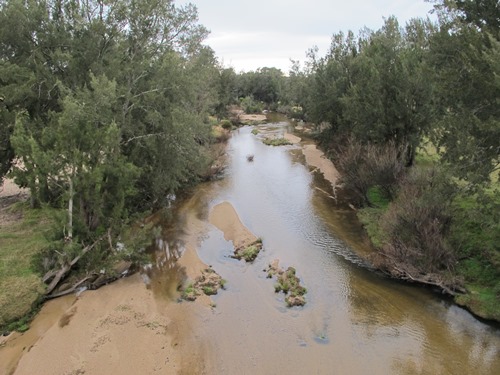Corruption undermines faith in $13b Murray-Darling Basin plan, says ‘basin cop’ Keelty

The Murray-Darling Basin’s ‘top cop’ says corruption scandals are eroding trust in the $13 billion plan to recover water for the environment.
Mick Keelty, the interim inspector-general for the basin, finished a tour of its southern reaches on Tuesday, a little more than a month since he was appointed to the role by Federal Water Minister David Littleproud.
Travelling between the Murray mouth in South Australia and the Hume Dam, Mr Keelty told the ABC that several high-profile scandals and revelations concerning water in the basin had undermined the public’s faith in the plan to save it.
“When I started this role we had a royal commission running in South Australia, we have a current investigation by the NSW Independent Commission Against Corruption (ICAC) that is yet to be completed, and there are prosecutions underway in Queensland,” he said.
“I think there are problems around corruption.”
 Few complaints amid complexity
Few complaints amid complexity
Mr Keelty said the state and federal departments tasked with ensuring compliance lacked effective processes for handling complaints.
“The interesting thing for me is that none of the matters that are currently underway, that I’m aware of, were actually commenced because of whistleblowers coming through departments,” he said.
“It’s actually been through investigative journalism, and that says to me that departments don’t have the right structures in place to bring forward complaints.”
The complexity of the system made it more difficult to ensure rules were followed, he said.
“If you look at the number of laws and policies, and even the number of little departments inside bigger departments who have some sort of role or responsibility here, it actually sets itself up for poor compliance.
“We have to improve that.”
Tide turning
The establishment of the NSW Natural Resource Access Regulator last year to strengthen and oversee compliance issues around water access in the state has, in Mr Keelty’s opinion, made NSW the strongest state for enforcement.
The independent body has so far investigated 900 cases of non-compliance and commenced nine prosecutions.
Along with remote-sensing technology and legislation around the metering of water pumps, Mr Keelty hoped public faith in the plan could be rebuilt.
“Thirteen billion dollars was invested by the Commonwealth, and we’ve spent about 80 per cent of that,” he said.
“We’ve also got a significant investment by the basin states, so this is taxpayers’ money that has to be properly managed and properly looked after.
“And just like it does in every other field of government or private enterprise, [that large amount of money] does provide a chance for corruption or fraud to take place.”
Tough summer ahead
Speaking with RN Breakfast on Monday morning, Mr Littleproud described a “frustration about the fact there is a dwindling amount of water because it hasn’t rained”.
“People grasp at different things when pointing to the cause of that, but there has been some lack of confidence around compliance, particularly in the north,” he said.
Mr Keelty said with no end to the drought in sight, water sharing in the basin would continue to be controversial.
“This summer is shaping up to be even worse than last summer,” he said.
“It is crucial that people abide by the rules that have been allocated to them, abide by the allocations they’ve been given.”
“But it is also important to ensure that we continue to let the environment exist — we have to think past this summer, and this is what the plan is about.”
Originally published by the ABC, 3 September 2019.
